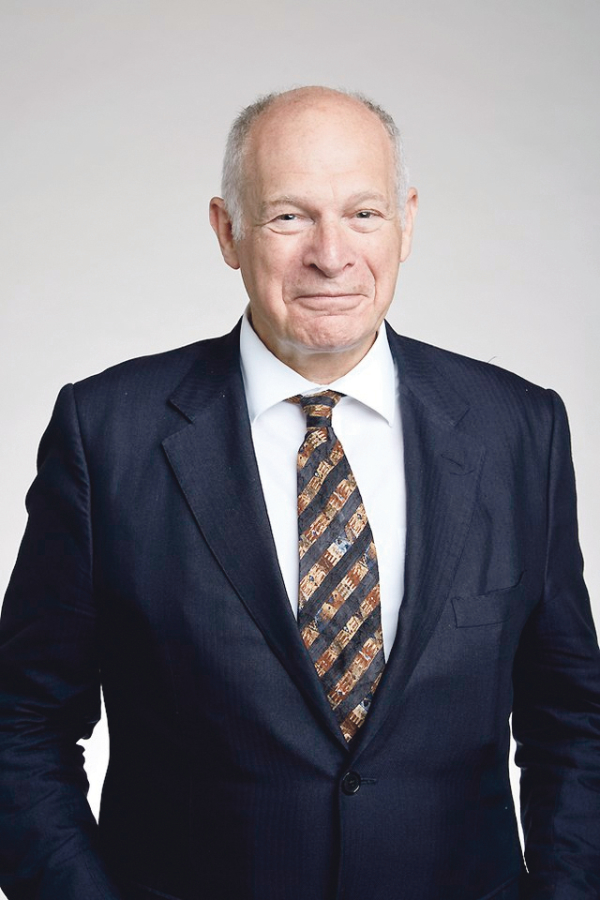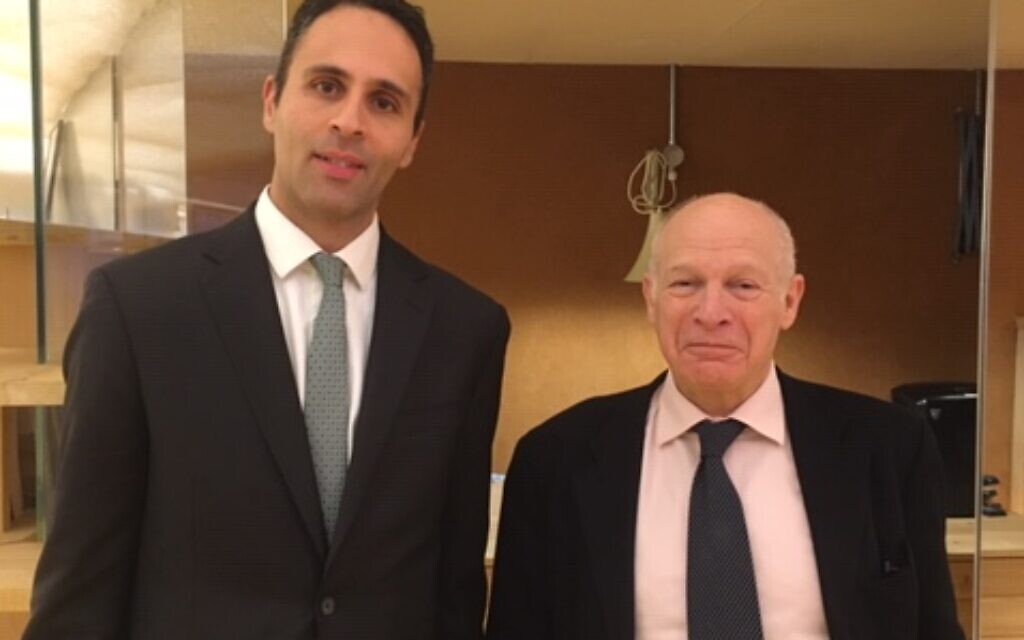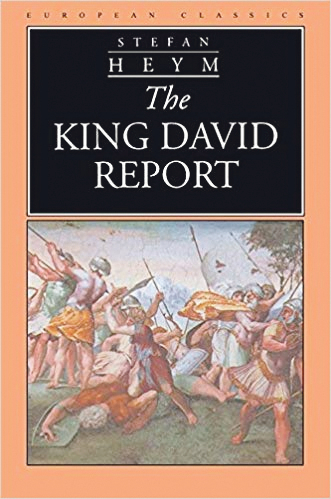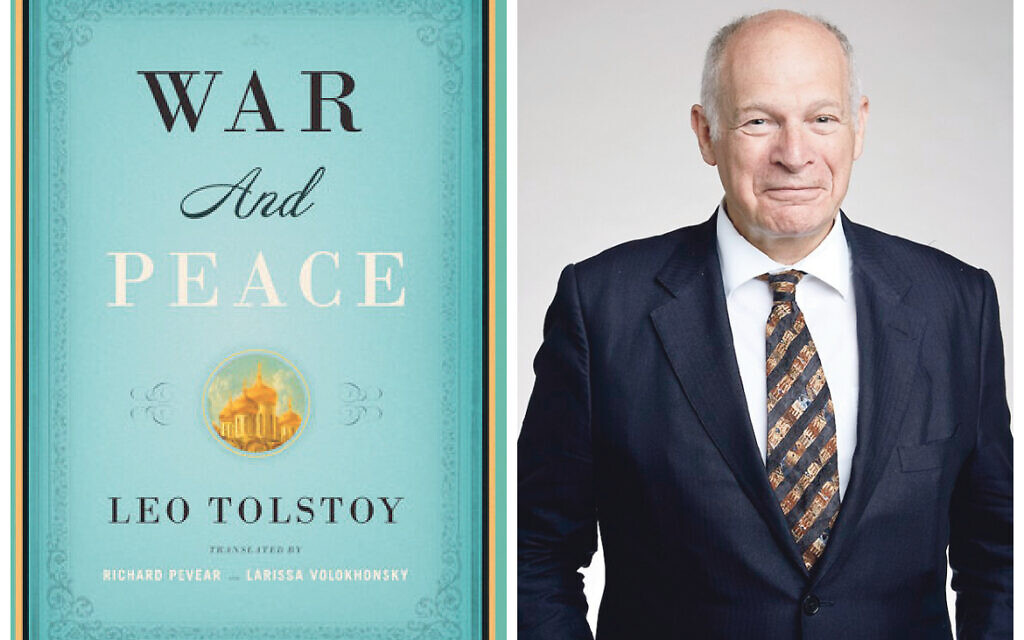Lord David Neuberger: ‘I half envy, half don’t understand religious people’
Zaki Cooper talks to barrister, judge and former president of the Supreme Court Lord Neuberger about his life, career and books that inspire him
In the latest in our new series of podcasts with Jewish people who are changing the world, Zaki Cooper talks to barrister, judge and former president of the Supreme Court Lord Neuberger about his life, career and books that inspire him.
Lord David Neuberger is a barrister and judge and was the second president of the Supreme Court, the highest court in the land, from 2012 to 2017. Before that, he was Master of the Rolls, having been appointed a Law Lord and become a peer in 2007. Now, Lord Neuberger of Abbotsbury is an arbitrator and legal expert based at One Essex Court.
- This interview is also available as a podcast and sponsored by yulife, life insurance that inspires life.
You were appointed to head the Supreme Court in 2012. How did you
react to this?
Get The Jewish News Daily Edition by email and never miss our top stories Free Sign Up
Not surprisingly a mixture of pleasure at having got to the top judicial job in the country and nervousness as to whether I would be up to the job.

The first book you have chosen is Herodotus’ The Histories, a classic written more than 2,400 years ago. Why did you choose this?
I’ve always been very fond of history. Not only is this book symbolic in that it is the first history book in the western world, but it is a wonderfully interesting and gossipy book. He must have been a fascinating man, possibly a bit of a nerd. But it’s well written and it’s one of the few history books I go back to.
As Supreme Court head, you were in post for five years. What was your average week like?

I suppose I would be sitting on a case two or three days a week. The rest of the time I would be either reading papers for cases I was going to hear, writing a judgement or reading a colleague’s judgement. Then there would be administrative responsibilities, lecture writing, preparing to speak to students and other groups, there would be communications with the Lord Chief Justice and other senior judges in the UK, and there would also be limited communication with politicians, particularly the Lord Chancellor.
You were dealing with some very difficult cases. Did any give you sleepless nights?
Yes, I didn’t regret the sleepless nights. One of the surprising things is that occasionally I did get to sleep and woke up with a thought that hadn’t occurred to me when I was awake. The worst type of sleepless night was after I had given judgement and wondered whether I had got it right.
Listen to a clip from the podcast here;
You have selected a number of novels. Two of those are 19th century classics, Tolstoy’s War and Peace and Jane Austen’s Pride and Prejudice. Why do you like those books?
 As I’ve got older, I’ve been reading novels less than I did. I’ve been reading more history books, science books and odd choices. But there are certain novels that I read when I was young, which I have gone back to. Those were the two that are closest to my heart. I still read Pride and Prejudice every other year, and War and Peace every five years, although I do tend to jump over the analysis of history chapter in that book.
As I’ve got older, I’ve been reading novels less than I did. I’ve been reading more history books, science books and odd choices. But there are certain novels that I read when I was young, which I have gone back to. Those were the two that are closest to my heart. I still read Pride and Prejudice every other year, and War and Peace every five years, although I do tend to jump over the analysis of history chapter in that book.
The Supreme Court has been in the headlines for its decision saying the government was unlawful in proroguing Parliament. What did you make of that as its former president?
I thought this was a relatively rare example of the courts performing one of their most essential functions, the constitutional function of balancing the role of the two other branches of government, the executive and the legislature. And deciding where the balance of power lay between the two, and the right of two as against each other.
- This interview is also available as a podcast and sponsored by yulife, life insurance that inspires life.
Before heading the Supreme Court, you were Master of the Rolls for three years. What did that entail?
That entailed being the senior judge in the Court of Appeal, which involved being responsible for three times as many judges as the Supreme Court. It involved effectively being the number two judge for England and Wales, and involved
a degree of responsibility for civil justice, as well as presiding over a number of cases as a judge.
Listen to a clip from the podcast here:
You didn’t start off as a lawyer. You spent a few years in banking and, before that, had studied chemistry at Oxford University. You have a big interest in science and one of the books you selected is Richard Dawkins’ classic, The Selfish Gene. Why did you select that book?
I thought I should choose a science book, but it was difficult to choose a particular one because there are no science books I go back to regularly. I chose The Selfish Gene because it was a relatively early book I read as a lawyer. I thought it was very well and clearly written, with fascinating ideas and very well developed.
Another of your selections was Evelyn Waugh’s novel, Scoop. Why do you like it?
When I looked back and thought which of the 20th century novelists I most admired, in terms of the number of books and style, it was Evelyn Waugh. He gets an astonishing amount of characters and thought-provoking events into books, which would now be regarded as pretty short.

What does being Jewish mean to you?
I have no religious feeling. It’s one of those curious things many people feel very strongly about. I half envy and half don’t understand people who are religious, but I respect their feelings. But I am very consciously Jewish. I don’t think you stop being Jewish in the way you stop being Christian, Islamic or Hindu.

You didn’t really encounter antisemitism in your long career in the law…
I heard a bit about antisemitism at the bar. When I started in the 1970s, there were sets of chambers that did not admit Jews, women or ethnic minorities generally. Obviously things have got a lot better.
Listen to the full podcast here:
Why do you think Jews have made such a disproportionate impact on the law?
I remember the first time I went into court with my pupil-master. He was arguing about the interpretation of a will. I still remember the feeling listening to the argument that this is just like a shiur discussing texts of the Bible. The way Judaism has developed as an intellectual religion of rules, as opposed to a religion of faith and beliefs is remarkable and means it is almost inevitable there will be a lot of Jewish lawyers.

You selected The King David Report by Stefan Heym. Why did you select that book?
It’s a novel I was captivated by. In a way, it’s a send-up to the story of King David in the Bible but it’s a brilliantly evocative picture of Israel at the times of King Solomon and King David. It’s written in a somewhat Biblical style and has real resonance to anyone who has read the Bible. It probably just struck a chord.
Lord Neuberger’s page turners
- Herodotus: The Histories
- Leo Tolstoy: War and Peace
- Jane Austen: Pride and Prejudice
- Richard Dawkins: The Selfish Gene
- Evelyn Waugh: Scoop
- Stefan Heym: The King David Report

Thank you for helping to make Jewish News the leading source of news and opinion for the UK Jewish community. Today we're asking for your invaluable help to continue putting our community first in everything we do.
For as little as £5 a month you can help sustain the vital work we do in celebrating and standing up for Jewish life in Britain.
Jewish News holds our community together and keeps us connected. Like a synagogue, it’s where people turn to feel part of something bigger. It also proudly shows the rest of Britain the vibrancy and rich culture of modern Jewish life.
You can make a quick and easy one-off or monthly contribution of £5, £10, £20 or any other sum you’re comfortable with.
100% of your donation will help us continue celebrating our community, in all its dynamic diversity...
Engaging
Being a community platform means so much more than producing a newspaper and website. One of our proudest roles is media partnering with our invaluable charities to amplify the outstanding work they do to help us all.
Celebrating
There’s no shortage of oys in the world but Jewish News takes every opportunity to celebrate the joys too, through projects like Night of Heroes, 40 Under 40 and other compelling countdowns that make the community kvell with pride.
Pioneering
In the first collaboration between media outlets from different faiths, Jewish News worked with British Muslim TV and Church Times to produce a list of young activists leading the way on interfaith understanding.
Campaigning
Royal Mail issued a stamp honouring Holocaust hero Sir Nicholas Winton after a Jewish News campaign attracted more than 100,000 backers. Jewish Newsalso produces special editions of the paper highlighting pressing issues including mental health and Holocaust remembrance.
Easy access
In an age when news is readily accessible, Jewish News provides high-quality content free online and offline, removing any financial barriers to connecting people.
Voice of our community to wider society
The Jewish News team regularly appears on TV, radio and on the pages of the national press to comment on stories about the Jewish community. Easy access to the paper on the streets of London also means Jewish News provides an invaluable window into the community for the country at large.
We hope you agree all this is worth preserving.
-
By Brigit Grant
-
By Laurent Vaughan - Senior Associate (Bishop & Sewell Solicitors)
-
By Laurent Vaughan - Senior Associate (Bishop & Sewell Solicitors)
-
By Laurent Vaughan - Senior Associate (Bishop & Sewell Solicitors)
-
By Laurent Vaughan - Senior Associate (Bishop & Sewell Solicitors)






















